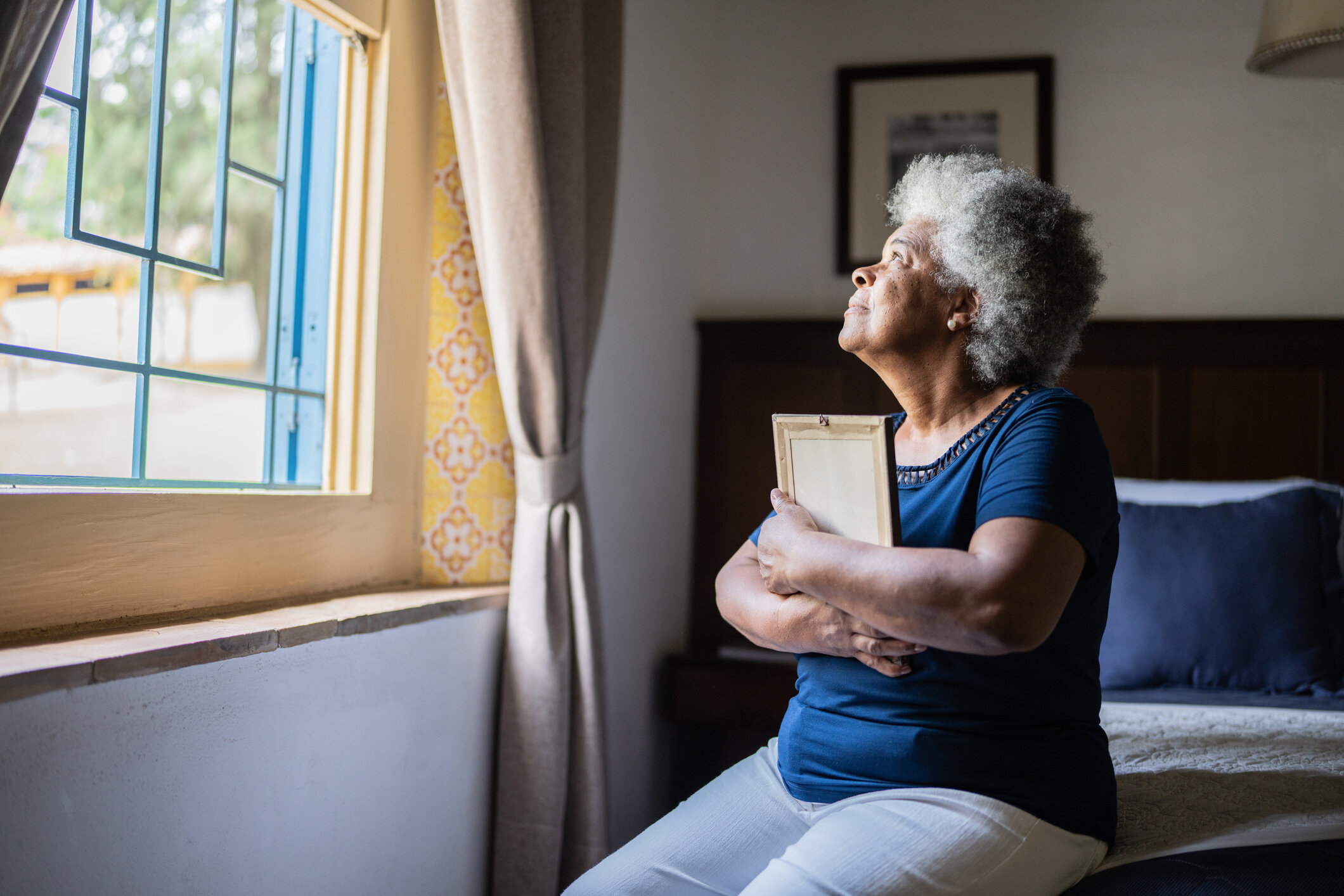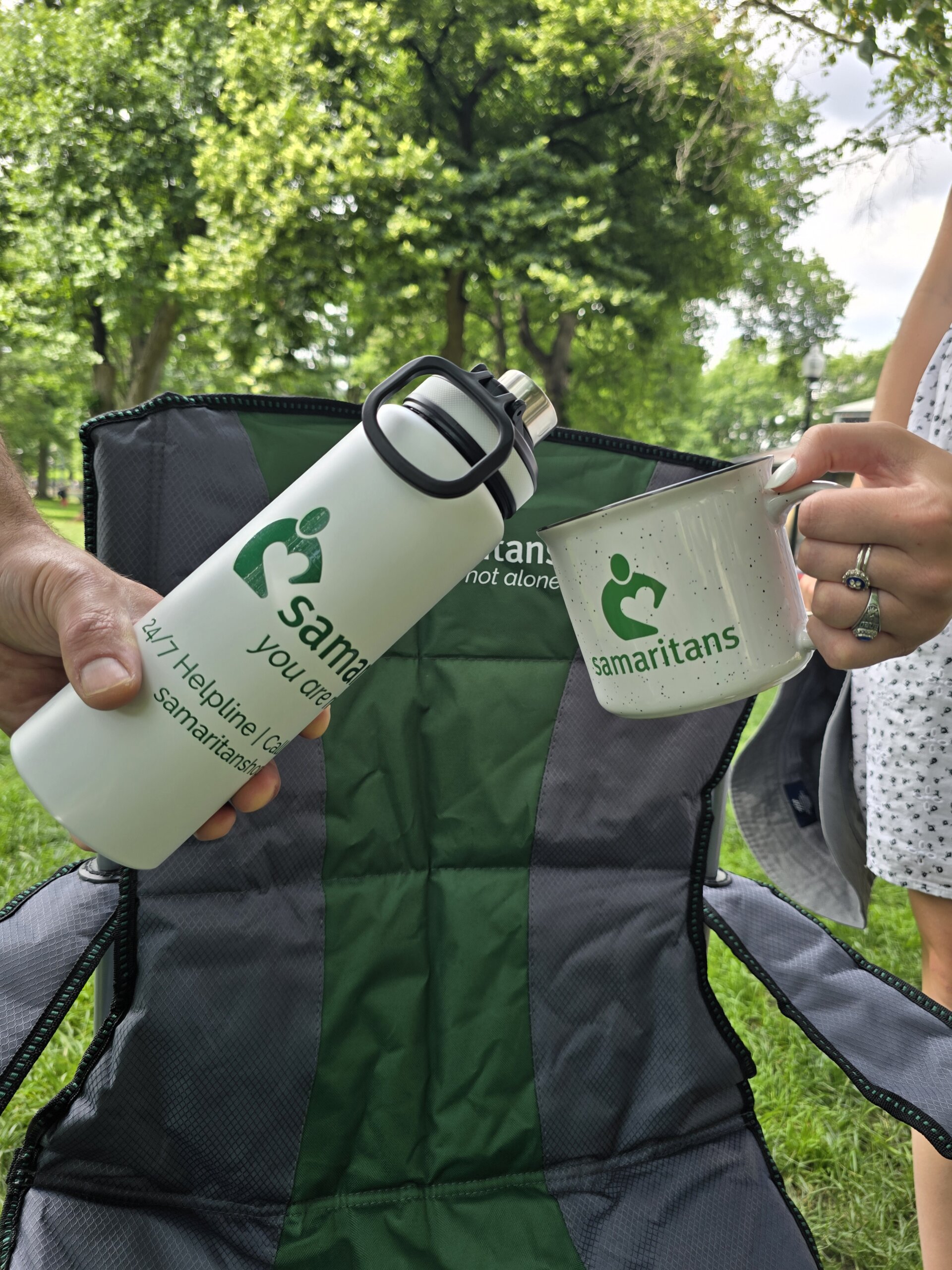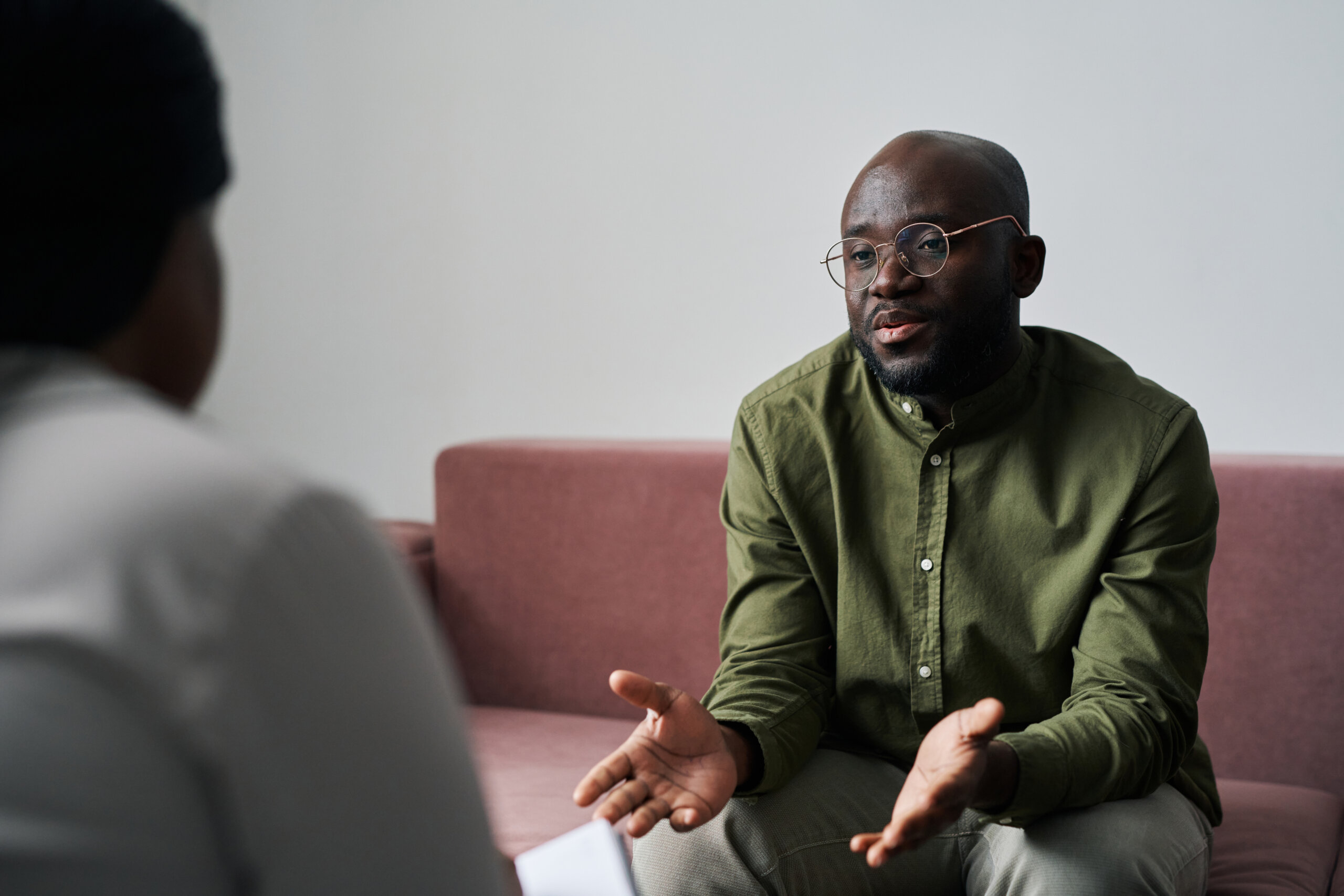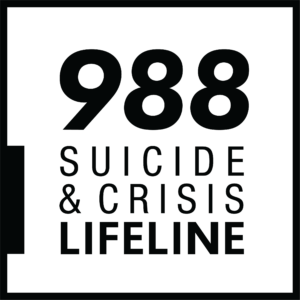Written by Olivia Weber, suicide loss survivor, annual 5K Run/Walk for Suicide Prevention participant, and suicide prevention workshop attendee
Pictured: Olivia (right) with her mom and sister at Samaritans 5K
A few months ago I was able to attend one of Samaritans workshops at my school.
As a high school student, I know the stress and anxiety school can put on students, including me. In the 8th grade, I lost my dad to suicide after he lost his battle with mental illness. Since then, I have engaged in multiple programs with Samaritans, including the 5K, support groups, and workshops.
One of the amazing counselors in the access center at my high school reached out to me to take part in Samaritans’ workshop at my high school. I said yes! I was not sure exactly what to expect, but I was excited to learn about mental health and to be able to share my knowledge and experience with others. Mental illness and suicide can often be stigmatized. From my experience in high school, students often do not feel comfortable opening up about these struggles.
I was slightly nervous to go to the workshop, and I was not sure if it would trigger any emotions from my dad’s suicide. During the workshop, I felt relieved and excited that there were a large number of students wanting to learn about mental health and Samaritans. In the workshop, we talked a lot about stress and anxiety, and how to not only cope with mental illness but also how to be there for others who are struggling.
We role-played with other students to develop the skills to help our friends and classmates who may be struggling with stress, depression, and other mental illnesses. It was a safe place to open up and ask questions about topics that can sometimes be uncomfortable but are necessary to discuss. One major thing I learned was different ways to speak to someone who is having suicidal thoughts, which can be very useful. I encourage all schools to have these workshops, not only for students but also for the staff, as it is extremely important to be able to help one another in difficult times.
With family members and close friends that deal with mental health issues, I am able to apply what I have learned from the workshop and relay my experiences and knowledge. After experiencing the effects of mental illness with my dad, I began to educate myself more about suicide, depression, and mental health. Although I can no longer help my dad, I can help those who suffer as he did and educate about the importance of these topics.
My dad was my world, and losing him tragically changed my life forever. But over time and with the help of Samaritans, I’ve learned to turn my tragedy into opportunity: an opportunity to educate people to see suicide victims as more than a statistic and de-stigmatize mental illness.
I used to be embarrassed to be open about my dad’s suicide and mental illness, but I have since learned that a large number of people suffer the way my dad did. We must talk about it and break the silence on mental illness.









